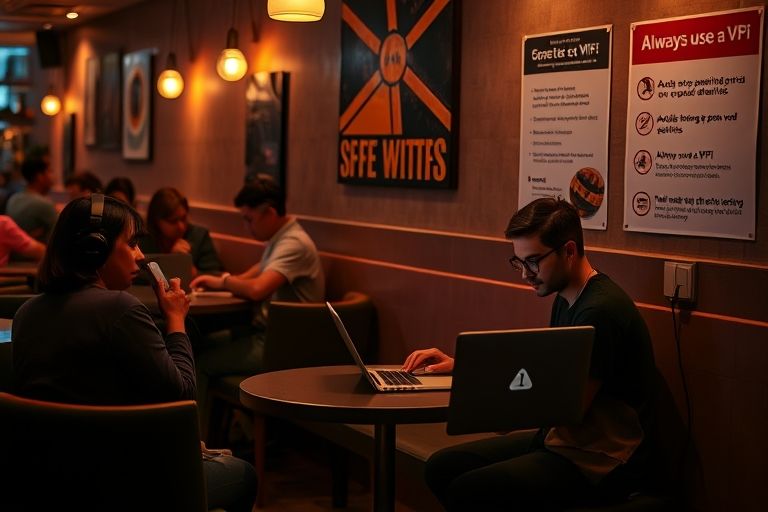
Public Wi-Fi is a convenience that most people take for granted. It’s available in coffee shops, malls, airports, and hotels, and it allows us to stay connected to the internet while on the go. However, public Wi-Fi is not without its risks. Hackers can use it to steal personal information, including passwords, credit card numbers, and other sensitive data. In this article, we’ll explore some of the risks associated with public Wi-Fi and discuss ways to stay safe.
One of the biggest risks of public Wi-Fi is the potential for hackers to intercept data transmissions. When you connect to a public Wi-Fi network, your device sends and receives data packets that contain information about your online activities. This information can be intercepted by hackers who are also connected to the same network. Once they have intercepted your data, they can use it for identity theft, credit card fraud, or other malicious purposes.
Another risk associated with public Wi-Fi is the presence of fake Wi-Fi networks. These networks are set up by hackers who create a fake Wi-Fi hotspot that appears to be legitimate. When you connect to the fake network, the hacker can intercept all of your data transmissions. This type of attack is known as a “man-in-the-middle†attack and can be difficult to detect.
Despite the risks, there are ways to stay safe when using public Wi-Fi. Here are a few tips:
A VPN is a software application that encrypts all of your internet traffic and sends it through a secure tunnel. This makes it much more difficult for hackers to intercept your data. Many VPNs are available, and some are even free. Make sure to choose a reputable VPN provider that has a good track record of protecting user privacy.
HTTPS is a secure version of the HTTP protocol that encrypts data transmissions between your device and the website you’re visiting. Look for the padlock icon in your browser’s address bar to ensure that you’re using an HTTPS website. If the website doesn’t use HTTPS, don’t enter any sensitive information.
Most devices are set up to automatically connect to any available Wi-Fi network. This can be convenient, but it also puts you at risk on public Wi-Fi. Disable the auto-connect feature on your device and manually select the networks you want to connect to.
Avoid doing anything sensitive on public Wi-Fi, such as online banking, shopping, or entering passwords. If you must do these activities, use a VPN or wait until you’re on a secure network.
Public Wi-Fi is a convenience that many people rely on, but it’s not without its risks. By following these tips and using common sense, you can stay safe on public Wi-Fi and protect your personal information from hackers.